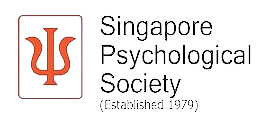The Difference Between Counselling and Therapy
We often hear the terms ‘counselling’ and ‘therapy’ being used interchangeably, but there are key differences between the two. While counselling and therapy are both mental health services, they differ in the qualifications of the mental health professional, scope of practice, and duration.
What is counselling?
Counselling is a type of mental health service provided by professionals that typically hold a master’s degree in counselling or a related field. Counsellors provide emotional support and guidance and work with the individual in acquiring or strengthening coping strategies and problem-solving skills. Counselling services are appropriate for those who need support and guidance in addressing present challenges such as stress and anxiety, relationship problems, grief and loss, career or academic difficulties, and life transitions. Counselling is a relatively short-term mental health service that generally ranges from weeks to months.
The Singapore Association for Counselling (SAC) has a directory of registered counsellors. Registration as a counsellor is important because it ensures that counsellors meet certain standards of education, training, and experience. This helps to protect the public from unqualified or unethical practitioners. To know if a practitioner is a registered counsellor, check the SAC directory or look at whether the practitioner indicates that they are a registered counsellor with the SAC.
What is therapy?
Therapy is a type of mental health service provided by professionals that typically hold a doctoral degree (e.g., Ph.D., Psy.D., or DClinPsy) in clinical psychology or a related field. These practitioners are professionally known as clinical psychologists. In Singapore, practitioners that hold a master’s degree in clinical psychology are also considered clinical psychologists. Clinical psychologists are trained in the assessment and diagnosis of mental health disorders and provide therapy for a wide range of mental health conditions. Therapy services are appropriate for those who suffer from anxiety, depression, PTSD, OCD, eating disorders, suicidality, and personality disorders. Therapy is typically long-term, lasting from months to years.
The Singapore Psychological Society (SPS) has a directory of registered psychologists. Look for the professional recognition, ‘Registered Psychologist (Singapore)’, to see if a practitioner is registered with SPS. The title verifies that the practitioner has met the necessary professional qualifications to practice in Singapore.
How are counselling and therapy similar?
Counselling and therapy are both mental health services that involve working with a trained mental health professional. Counselling and therapy offer a safe space for individuals to freely engage in self-disclosure and exploration. Both services are bound by strict confidentiality to protect the individual’s identity and personal information. The goal of counselling and therapy is to help individuals cope with challenges in their lives and improve their emotional well-being, ultimately creating a life worth living. Counselling and therapy services are grounded in evidence-based practice, meaning the approaches the practitioner use are based in research that have been found to be effective in treating various mental health issues.
How are counselling and therapy different?
Counselling and therapy are different in terms of the qualifications of the practitioner, focus of practice, and duration. Practitioners that provide counselling are called counsellors and generally have a master’s degree in counselling or a related field. Whereas practitioners that provide therapy are generally called clinical psychologists and typically have a doctoral degree in clinical psychology or a related field.
Counselling is more solution-oriented while therapy is more in-depth and exploratory. Counselling focuses on addressing current challenges and learning skills or strategies to resolve a problem. On the other hand, therapy explores the underlying causes of mental health symptoms to promote lasting change in the individual.
Lastly, counselling is typically short-term, lasting about a few weeks to months. Whereas therapy is often more long-term, with sessions lasting from months to years.
Thinking about therapy? Join Us!
The choice between counselling and therapy depends on the individual’s current difficulties, specific needs, and goals. If there are current issues that you would like support and guidance with addressing, then counselling may be appropriate. If there are more deeply rooted issues and the condition of your mental health is more severe, then therapy may be more suitable.
When seeking professional help, it is important to find qualified practitioners. At Us Therapy, we provide both counselling and therapy services by our talented and highly qualified psychologists in Singapore. Our counsellors and clinical psychologists are trained mental health professionals with years of experience and are registered with the SAC and SPS. Give us a call and book your appointment today!
Written. by Emma Waddington, Founder at Us Therapy, Reviewed in December 2023




